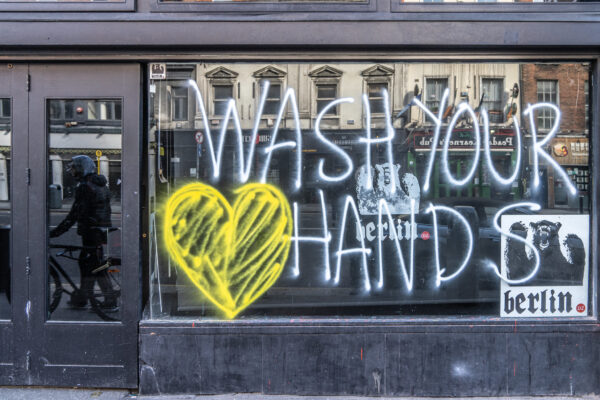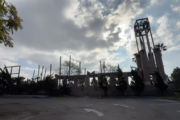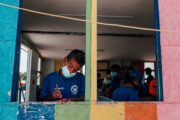In the wake of COVID-19, communities across the world are undergoing immense changes and facing great uncertainties. Brie Loskota appeared on KPCC’s Take Two to discuss how communities should respond during these times.
Here is an excerpt from the interview, where she explains what she has seen in communities:
“The community message boards and Facebook groups are all sharing information about where you can buy what you need and encouraging responsible shopping and not hoarding, providing tips and links for people who are at home with their children for educational opportunities. And there is just a lot of checking in on each other, especially calls to check in on the elderly or people who have compromised immune systems, offering to run errands for them. So there’s just a lot of care of other humans. I’m really glad that you asked about the best, because often the stories that get amplified are the worse. We need so many more reminders of the goodness, to outweigh the badness.”
Why are people acting selfishly? Loskota said:
“Our circles of concern have shrunk down very far to just me and my people. The civic institutions we used to rely on to create a broader sense of us-ness are playing a smaller role for a smaller number of people. We don’t have the same sense of collective identity or us-ness as we used to. We also know that our response systems in the US have failed, [such as during Hurricane Katrina]. … We also just in general have a hard time to dealing about uncertainty. … There is a lot of uncertainty in the air, so they grasp for things that make them feel certain. And sometimes those thing are things that are no exactly the most pro-social, but they placate our sense of uncertainty.”
Loskota suggested golden rules for living in the midst of pandemic: respect each other; treat each other with kindness; take breaks from social media and watching the news; connect with each other and revive traditions of neighborliness. For instance, she and her neighbors are eating dinner on their lawns over the weekend, socializing from a safe distance. She suggested donating blood and money when you can to help others.
“Religious life is about creating a rhythm to a day or a week or a year,” Loskota concluded. “And in times like this where a lot of the structures we rely on to deal with the typical parts of our day have been disrupted, creating a new rhythm for life will be really grounding for folks.”
Click here to listen to the full program.
Loskota was also interviewed by U.S. News & World Report on how religious communities can accommodate the rapidly shifting public health advisories.
Here is an excerpt from the article:
“One thing that people often forget about religious life is it’s actually remarkably adaptive,” says Brie Loskota, executive director of the Center for Religion and Civic Culture at the University of Southern California. “It’s just happening right now in a very fast-paced way, and in response to something that is very scary.”
From a religious standpoint, Loskota points out, the pandemic also appears to be intensifying at perhaps the worst possible time of year: In addition to Purim, which ended Tuesday, throughout this month American Hindus are celebrating the spring festival Holi, with parades scheduled in cities around the country. Next month, Jews will celebrate Passover, Christians will mark Easter, and Muslims will begin Ramadan prayers. “We’re in like the religious sweeps week for the month of April,” says Loskota.
Click here to read the article.
The Wall Street Journal also wrote about the affect of COVID-19 on family gatherings and quoted Loskota on the return to home-based worship:
With houses of worship closed, “there seems to be a return to home-based religiosity,” says Brie Loskota, executive director of the Center for Religion and Civic Culture at the University of Southern California in Los Angeles. The home is where beliefs and values have long been instilled daily and informally, she says.
Click here to read the article.
Teen Vogue wrote about young people being affected by COVID-19 and quoted Richard Flory, whose most recent book explores young adult religion. The quote comes from a USC source alert:
Richard Flory, a senior director of research and evaluation at the Center for Religion and Civic Culture at the University of Southern California, says the crisis will likely be “one of the formative experiences of most young people’s lives,” similar to the way 9/11 and the Great Recession impacted previous generations.
Click here to read the article.
At Bethel, a Pentecoastal megachurch known for its belief in miracles, church leaders have adopted certain procedures in response to the threat of COVID-19. Richard Flory was interviewed by Religion News Service on Bethel’s balance between faith and modern medicine.
Here is an excerpt from the article:
Richard Flory, senior director of research and evaluation at the University of Southern California’s Center for Religion and Civic Culture, said the church can recognize science as a God-given thing. Oftentimes, he said, miracle healing is “reserved for extraordinary circumstances.”
Click here to read the article.
Photo credit: William Murphy / Flickr





